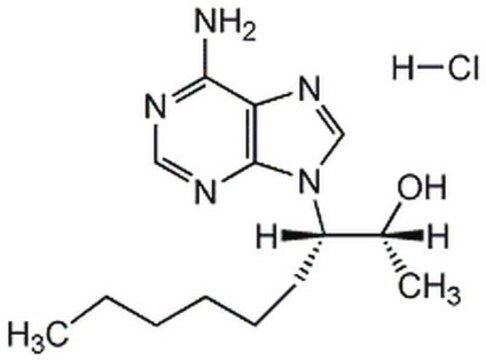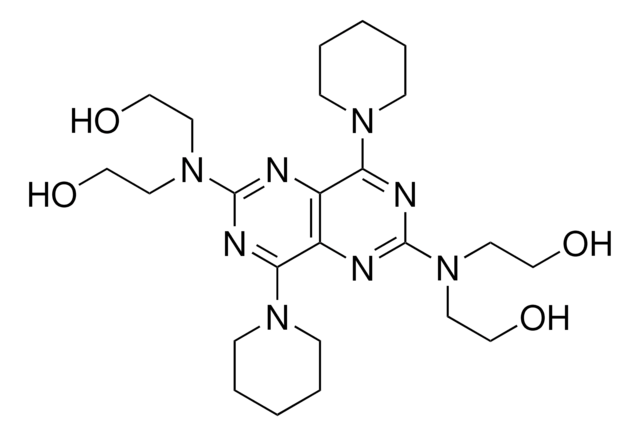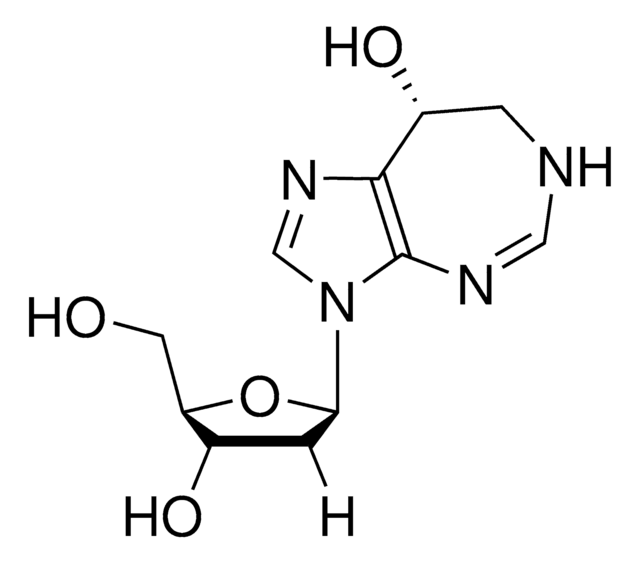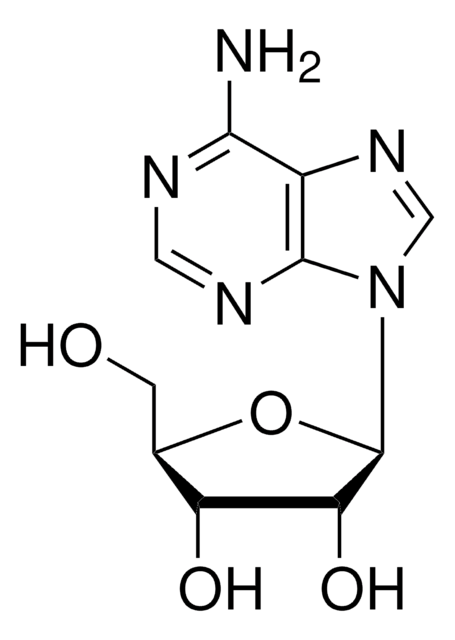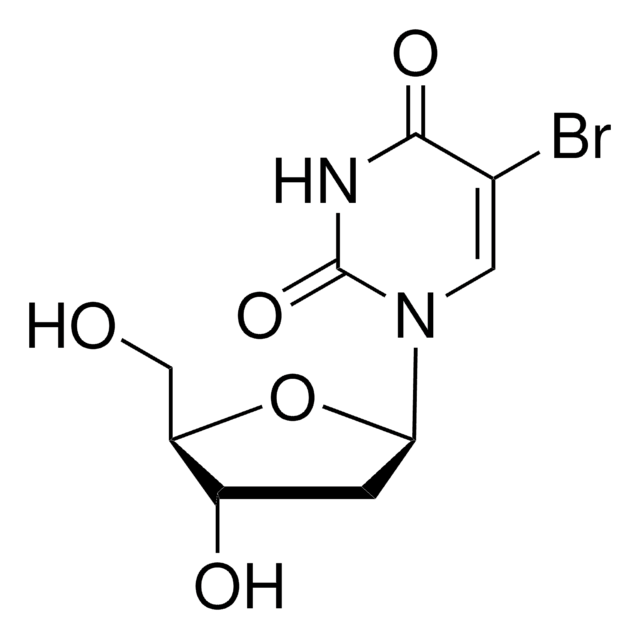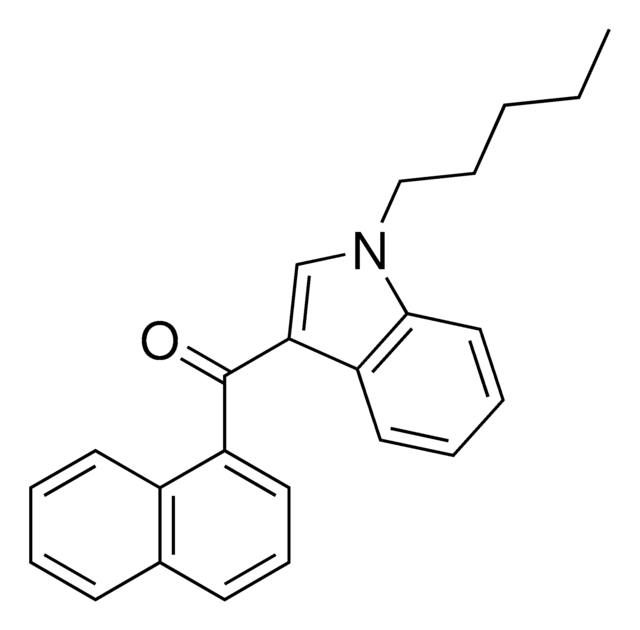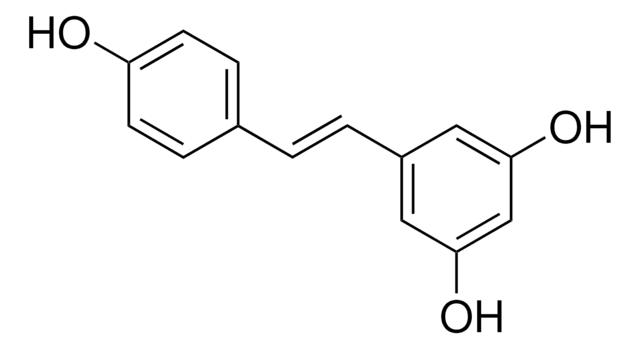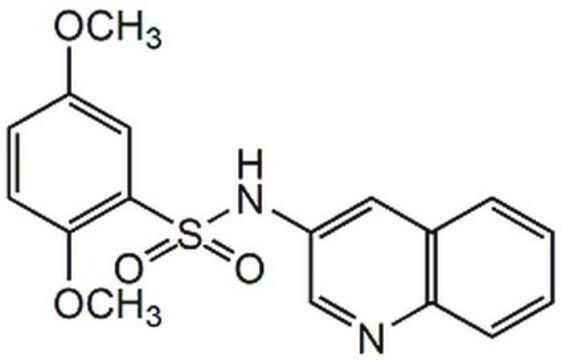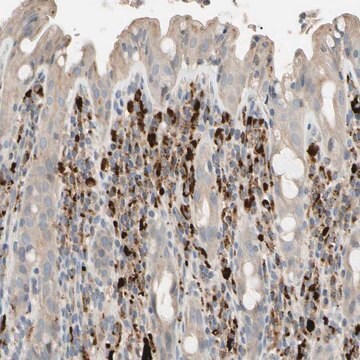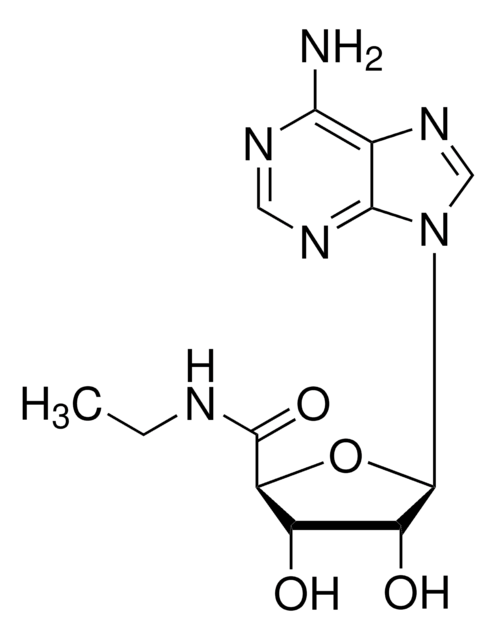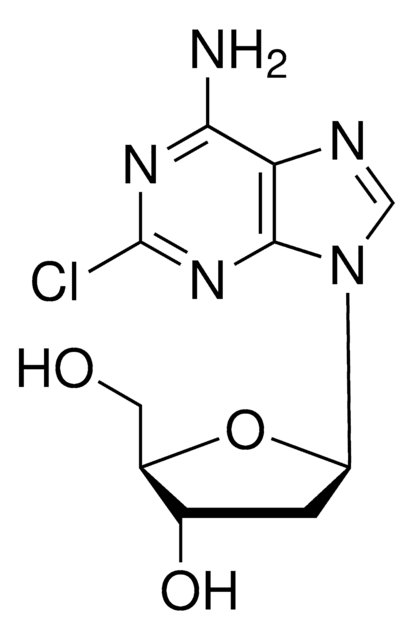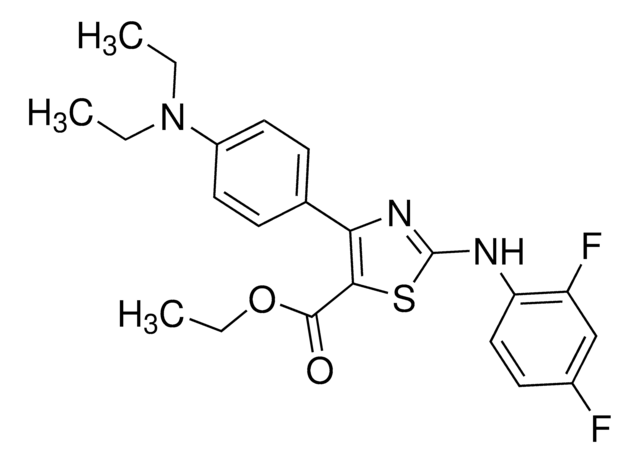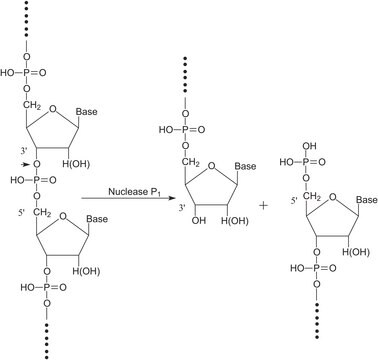E114
EHNA hydrochloride
≥98% (HPLC), powder, adenosine deaminase inhibitor
Synonym(s):
erythro-9-(2-Hydroxy-3-nonyl)adenine hydrochloride, erythro-9-Amino-β-hexyl-α-methyl-9H-purine-9-ethanol hydrochloride
About This Item
Recommended Products
product name
EHNA hydrochloride, ≥98% (HPLC)
Quality Level
Assay
≥98% (HPLC)
storage condition
desiccated
solubility
DMSO: >10 mg/mL
H2O: >10 mg/mL
SMILES string
Cl[H].CCCCCC[C@H]([C@H](C)O)n1cnc2c(N)ncnc12
InChI
1S/C14H23N5O.ClH/c1-3-4-5-6-7-11(10(2)20)19-9-18-12-13(15)16-8-17-14(12)19;/h8-11,20H,3-7H2,1-2H3,(H2,15,16,17);1H/t10-,11+;/m0./s1
InChI key
VVDXNJRUNJMYOZ-VZXYPILPSA-N
Gene Information
human ... ADORA1(134) , ADORA2A(135) , ADORA2B(136) , ADORA3(140)
Looking for similar products? Visit Product Comparison Guide
General description
Application
Biochem/physiol Actions
Features and Benefits
Storage Class Code
11 - Combustible Solids
WGK
WGK 3
Flash Point(F)
Not applicable
Flash Point(C)
Not applicable
Personal Protective Equipment
Certificates of Analysis (COA)
Search for Certificates of Analysis (COA) by entering the products Lot/Batch Number. Lot and Batch Numbers can be found on a product’s label following the words ‘Lot’ or ‘Batch’.
Already Own This Product?
Find documentation for the products that you have recently purchased in the Document Library.
Customers Also Viewed
Related Content
Cyclic nucleotides, including cyclic AMP (cAMP), cyclic GMP (cGMP) and cyclic ADP-ribose, have been extensively studied as second messengers of intracellular events initiated by activation of GPCRs. cAMP modifies cell function in all eukaryotic cells, principally through the activation of cAMP-dependent protein kinase (PKA), but also through cAMP-gated ion channels and guanine nucleotide exchange factors directly activated by cAMP.
Our team of scientists has experience in all areas of research including Life Science, Material Science, Chemical Synthesis, Chromatography, Analytical and many others.
Contact Technical Service
